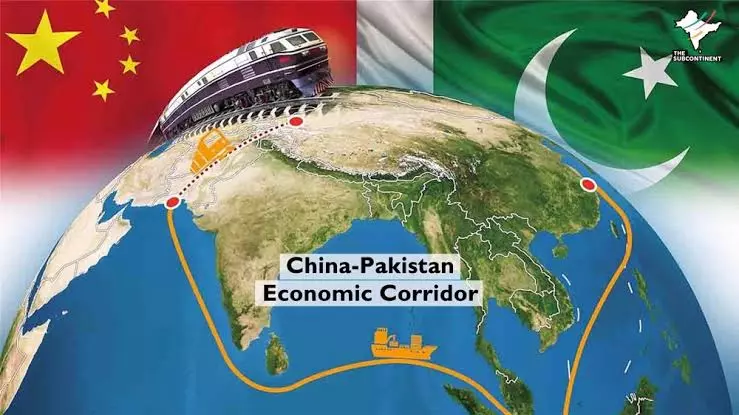ISLAMABAD, Oct 19(ABC): Just ahead of Prime Minister Shehbaz Sharif’s upcoming visit to China, Islamabad is all set to approve the revised cost of stalled project Mainline-1 up-gradation of rail link and provision of its security with a whopping escalated cost of 45%.
The revised cost of ML-1 up-gradation and establishment of the dry port at Havelian has now been estimated at Rs1,970.2 billion. The government also proposed the provision of security for the project of Mainline-1 with an estimated cost of Rs35.99 billion.
The revised cost of ML-1 along with security has been estimated at Rs2 trillion or approximately $10 billion (with an exchange rate of Rs215 against the US dollar) against the earlier approved cost of $6.8 billion. The revised cost of ML-1 has gone up by 45% in the wake of the depreciating exchange rate.
The Joint Coordination Committee (JCC) of the China–Pakistan Economic Corridor (CPEC) is expected to be held in the last week of the ongoing month, tentatively on October 27. Pakistan wants the completion of all spadework for approving this much-awaited project of ML-1.
Pakistan and China had signed a framework agreement in 2017 for ML-1 but in the last five years the CPEC was slowed down and the financing agreement could not be struck between the two sides.
In the meanwhile, the last PTI-led regime had approved the ML-1 at an estimated cost of $6.8 billion but both sides failed to execute the project and it proved a non-starter. The Ministry of Railways has revised its cost in accordance with the fresh working paper. The government allocated Rs5 billion to the Public Sector Development Programme (PSDP) for the current fiscal year.
Independent analysts say that it would be a challenging situation for Pakistan to execute a multibillion dollars project at a time when the county is under the tight scrutiny of the International Monetary Fund (IMF). It will be hard to execute ML-1 with the inclusion of Rs2 trillion as part of the PSDP which will hike the throw-forward of the development, a matter of concern for the IMF and World Bank.
The financing agreement of ML-1 has remained problematic between the two sides. Now Pakistan is hoping that substantial progress could be made in the coming JCC meeting whereby Islamabad wanted to go ahead with the bidding process after an agreement with the Chinese side.
JCC meeting
According to an official press release issued by the Ministry of Planning stated that Planning Minister Ahsan Iqbal on Tuesday reviewed progress over the next 11th JCC meeting to be held at the end of this month.
The meeting was attended by the planning commission and communication secretaries, CPEC executive director and representatives from various ministries. During the pre-CPEC JCC meeting, major deliverable projects were discussed in length which will be taken up in the upcoming joint meeting.
PM Shehbaz will be visiting China later this week and the 11th JCC will have significance since the incumbent government has already revived CPEC projects which remained neglected during the last four years of PTI’s tenure.
During the meeting, several projects in various sectors like energy, transport, information technology, socio-economic development, industrial cooperation, science and technology, transport infrastructure and international cooperation were discussed. The respective ministries shared their deliverable proposals of projects after conducting their Joint Working Groups to be taken up in JCC with the Chinese authorities.
The minister directed the Power Division to expedite the approval process of energy policy for Gilgit-Baltistan so that already agreed projects for GB could be pushed forward. The minister also stated that Chinese authorities have shown great interest in the mining sector and directed the concerned ministry to make a tangible proposal in this regard.
“The Chinese are ready to set up a working group on the mining sector, therefore, we must give them some tangible proposals,” said the minister, while stressing the ministries to make a concrete plan rather than a business-as-usual approach.
He further directed that the development and production facility of solar panels for domestic use as well as the export may be considered for inclusion in the agenda of the meeting. A representative from information technology informed the minister that both countries decided to set up six sub-working groups on communication technology infrastructure, application innovation, policy and regulation, HR development, cyber security and radio spectrum regulation.
Similarly, it was also proposed that the Pak-China Technology Business Forum will be formally established during the JCC meeting. The minister also directed the ministries concerned to focus on the long-term plans as well so that the projects could be operationalised.

